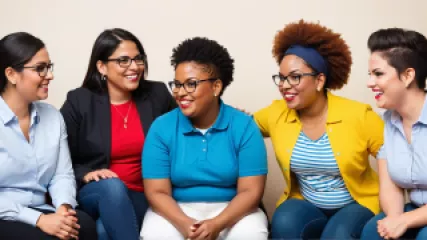How Can We Challenge Gender Stereotypes in Society?
Gender stereotypes have long been ingrained in society, perpetuating traditional gender roles that can limit individuals' potential and hinder their self-esteem and mental well-being. These societal expectations often assign specific characteristics, behaviors, and roles to individuals based on their gender, reinforcing harmful and narrow definitions of masculinity and femininity.
Introduction
However, challenging these gender stereotypes is vital for creating a more inclusive and equitable society. By recognizing the intersectionality of gender roles and understanding their impact on individuals and communities, we can work towards dismantling these harmful norms and promoting gender equality.
In this article, we will explore various ways in which we can challenge gender stereotypes in society and promote a more inclusive and accepting environment for everyone.
Educating and Raising Awareness
One of the key steps in challenging gender stereotypes is through education and raising awareness about the harmful effects of these societal expectations. By providing comprehensive and accurate information about gender diversity, educators, parents, and influencers can help dismantle stereotypes and foster a more inclusive understanding of gender identities.
Integrating gender studies into school curricula, promoting discussions on gender equality, and providing resources that challenge traditional gender roles can empower young minds to think critically and question societal norms. Additionally, organizing workshops, seminars, and awareness campaigns can reach a wider audience and foster meaningful conversations about breaking free from gender stereotypes.
Media Representation
The media plays a significant role in shaping societal perceptions and reinforcing gender stereotypes. Therefore, it is crucial to promote diverse and positive representations of gender in various forms of media, including television shows, movies, advertisements, and social media.
Encouraging media outlets to depict strong and complex characters who defy traditional gender roles can help challenge stereotypes and provide alternative narratives. By showcasing individuals who excel in non-traditional fields, exhibit emotional vulnerability, or challenge societal expectations, the media can play a transformative role in shaping attitudes and breaking down gender barriers.
Supporting Non-Traditional Career Choices
Gender stereotypes often influence career choices, limiting individuals' options based on societal expectations. To challenge these norms, it is essential to support and encourage individuals, regardless of their gender, to pursue their passions and interests in any field they choose.
By providing equal opportunities, mentorship programs, and scholarships for underrepresented genders in traditionally male-dominated or female-dominated fields, we can break down barriers and challenge the notion that certain careers are only suitable for one gender. Creating inclusive work environments, implementing gender-neutral hiring practices, and promoting diverse leadership can also contribute to challenging gender stereotypes within professional settings.
Encouraging Emotional Expression
Gender stereotypes often dictate that men should be strong, stoic, and unemotional, while women are expected to be nurturing and sensitive. These expectations can have detrimental effects on individuals' mental well-being and hinder healthy emotional expression.
By challenging these stereotypes and encouraging emotional intelligence and expression for all genders, we can create a more compassionate and supportive society. Teaching emotional literacy in schools, promoting open conversations about feelings, and destigmatizing seeking help for mental health can help break down harmful gender norms and foster healthier relationships with emotions.
Fostering Intersectionality
It is essential to recognize that gender roles intersect with other aspects of identity, such as race, ethnicity, sexuality, and disability. By acknowledging and addressing these intersections, we can challenge gender stereotypes more effectively and ensure a more inclusive approach to social progress.
Intersectional feminism advocates for dismantling not just gender stereotypes but also the interconnected systems of oppression that impact individuals differently based on their intersecting identities. By amplifying the voices of marginalized communities and centering their experiences, we can challenge gender stereotypes in a more comprehensive and inclusive manner.
Conclusion
Challenging gender stereotypes is an ongoing process that requires collective effort from individuals, communities, educational institutions, media outlets, and policymakers. By educating ourselves and others, promoting diverse representation, supporting non-traditional career choices, encouraging emotional expression, and fostering intersectionality, we can create a society that celebrates and embraces the richness of gender diversity.
Breaking free from traditional gender roles not only benefits individuals but also contributes to a more equitable and inclusive world, where everyone can thrive regardless of their gender identity or expression.






